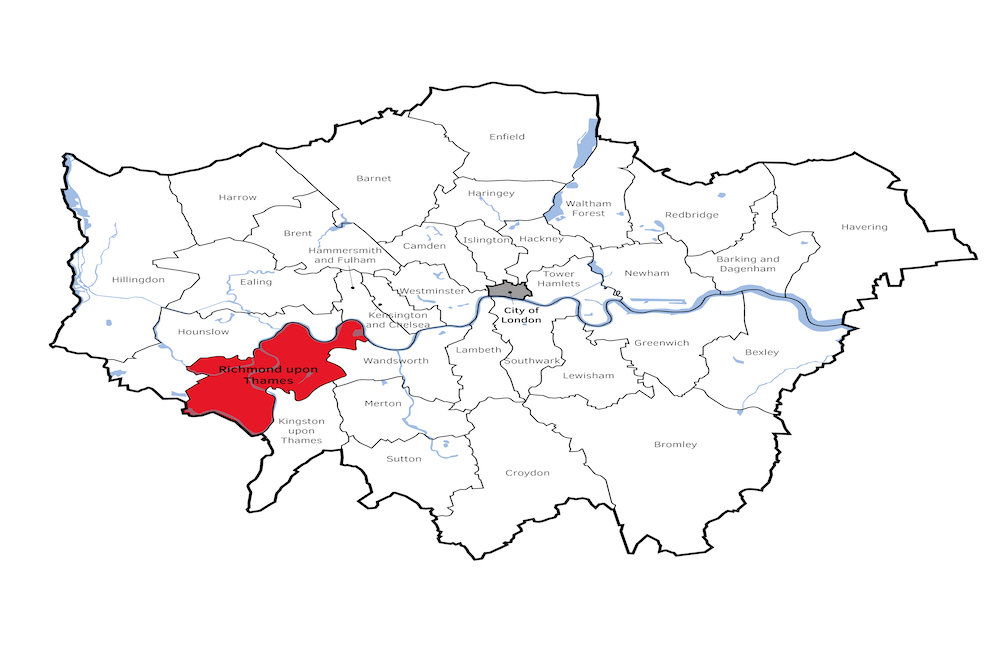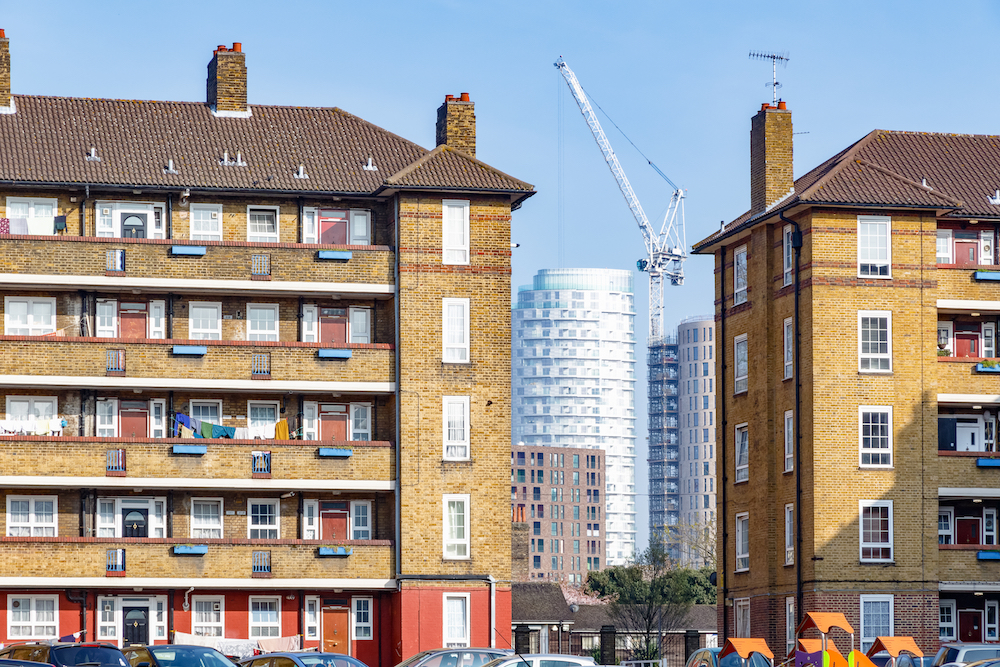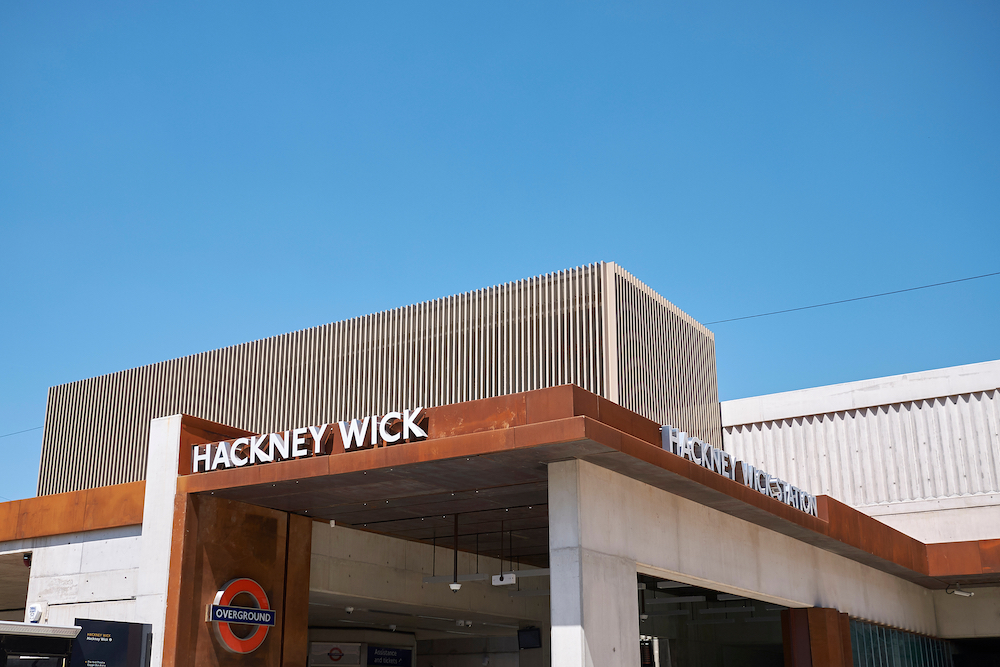
by Simon Fitzsimmons | Aug 30, 2022 | News
A new housing scheme to be built on the site of a former college in London has been given unanimous approval by the council.
The application is for 212 new homes, including 100 new affordable homes, on the location of the former Richmond-upon-Thames College.
The development arm of Clarion Housing Group, Latimer, will demolish the ex-campus buildings before constructing the new sustainable mixed-tenure scheme.
The developer acquired part of the Egerton Road campus from the college back in 2018, before submitting initial plans for the site.
It then submitted a revised planning application to boost the total number of homes at the scheme from 180 to 212 and increase the proportion of affordable homes from 19% to 51%. The revised proposals were unanimously approved by councillors in August 2022.
The developer will build 28 homes for affordable rent and a further 80 for shared ownership. The remaining 104 homes will be sold privately.
The new homes form part of the borough’s wider £80m college project which also includes a replacement college campus, two new schools, an extended sports hall and a science hub.
Students moved into the new campus on Langhorn Drive in Spring 2020.
Latimer’s approval for the new housing scheme will now facilitate further progress on the wider project – with construction work on the new homes expected to start early next year.
The ‘net zero carbon compatible’ homes will be built with high levels of insulation and ventilation efficiency, with any carbon emissions offset by energy generated by photovoltaic solar panels.
Biodiversity will be boosted through wildlife-friendly landscaping, rain gardens and an ecological corridor of new trees and shrubs.
Richard Cook, group director of development at Clarion Housing Group, said: “We are delighted to gain planning consent to build this highly sustainable scheme in Richmond, delivering vital new affordable homes to local people in the borough.
“We are passionate about making our homes and communities fit for the future. Delivering net zero carbon homes in Richmond will not only make a significant positive impact to the environment but also help residents reduce their energy bills – at a time when this has never been more important.”

by Simon Fitzsimmons | Aug 11, 2022 | News
The Right to Buy Back scheme, launched in July 2021 by The Mayor of London Mayor Sadiq Khan, has seen 1577 market homes brought back into public ownership.
To date, 14 London boroughs have been allocated £152m to purchase market homes that have been (or will be) converted into affordable housing, either council homes let at social rent or homes to be let as accommodation for homeless households. This includes a total of 908 homes to be let at social rent levels, the cheapest affordable council rents.
Right to Buy formed part of the 1980 Housing Act and gave council tenants who had lived in their house for more than three years the chance to buy their property at a price substantially below market rate.
Since the Act’s introduction more than 300,000 London council homes have been sold. The number of replacement council homes that were funded with Right to Buy receipts in London over the last decade (around 14,000) is lower than the total number of homes sold through Right to Buy over the same period (around 23,000).
While the number of Right to Buy sales has been declining in recent years, the policy continues to have a negative impact on the overall number of council homes in London.
Furthermore, recent research has found four in ten properties go on to be rented on the private market rather than the original mandate of boosting owner occupation.
Alongside the Right to Buy-back programme, Mayor Sadiq Khan’s initiatives to help increase the supply of council housing across London also include £1bn Building Council Homes for Londoners grant funding programme and his £10m Homebuilding Capacity Fund.
The Mayor hit his previous target of starting 10,000 new City Hall-funded council homes earlier this year and now aims to start a further 10,000 homes in a significantly shorter time – a total of 20,000 new City Hall-backed council homes by 2024.
Sadiq Khan said: “For more than 40 years, London’s precious council homes have been disappearing into the private sector, often never to be replaced. As Mayor I have maintained a relentless focus on stemming the tide and replenishing London’s social housing stock.
“I am proud that, thanks to my interventions, we have brought council homebuilding back up to levels not seen since the 1970s and I’m hugely encouraged by the enthusiasm I see from boroughs across London for building new council homes and using my Right to Buy-back scheme to return homes to public ownership.
“These homes were built for the public good and it has been painful to watch them disappear into private portfolios. Returning these homes to public ownership is a key part of my plan to build a better London for everyone – a city that is greener, fairer and more prosperous for all.”
Damien Egan, Mayor of Lewisham, said: “The Right to Buy-back scheme is already making a big difference in Lewisham, with families moving into their new homes.
“Thanks to funding from the Mayor of London, Sadiq Khan, we have been able to bring these homes back into public ownership, helping to house families on our housing waiting list, many of whom have had years waiting in hostels and B&Bs.”
In August last year, the Mayor expanded the Right to Buy-back programme to help councils support the arrival of Afghan refugees. Through this expanded offer, he funded London boroughs Hounslow and Islington to purchase 39 homes for recently arrived Afghan families.
Councillor Tom Bruce, Cabinet Member for Regeneration and Development at Hounslow Council, said: “We are delighted to be working with the Mayor of London on this fantastic scheme. With 188 languages spoken in the borough, Hounslow is a diverse community that has proud history of supporting refugees.”
“We recently purchased fifteen properties for Afghan refugees under this scheme and we look forward to them becoming proud residents of Hounslow.”

by Simon Fitzsimmons | Jul 31, 2022 | News
Plans for a 190-home development around Hackney Wick Station have been approved. The application by housing association Notting Hill Genesis (NHG) also includes creative and public space.
NHG submitted a Reserved Matters Application (RMA) in January, outlining how they would transform the sites into a new neighbourhood centre.
The homes will be across four buildings and will provide a mix of London Affordable Rent, shared ownership and private sale housing. All will be five per cent larger than national size standards, while half will be affordable housing.
As part of the RMA, there will also be more than 4,000sqm of high-quality public space, alongside residential play areas, roof terraces and podium amenity. The plan is compliant with the New London Plan for cycle parking provision and has a focus on sustainability, with no fossil fuels needed to power either the homes or commercial space.
The submission also includes more than 4,000sqm of commercial space, a quarter of which will be low-cost.
The land, which is on the border of Hackney and Tower Hamlets, is owned by London Legacy Development Corporation, and it is their planning decisions committee that granted permission.
John Hughes, group director of development for Notting Hill Genesis, said: “We are very proud of the plans we put forward for new homes, public realm and commercial space at Hackney Wick and are pleased the LLDC shared our enthusiasm for the proposal.
“This is such an exciting area, with fantastic transport links to the rest of London and beyond and we look forward to providing more of the quality, affordable homes so needed in this area.”
Rosanna Lawes, executive director of development at LLDC, added: “This is fantastic news for the next chapter for Hackney Wick neighbourhood centre. This site, adjacent to Hackney Wick station will deliver new homes, 50 per cent affordable, the retention of affordable workspace, employment space and high-quality public realm.
“This is going to be a high quality, well-designed, mixed use development that will fit with its surroundings and will bring real benefits for local people and businesses.”
Notting Hill Genesis were chosen as development partner in March 2021, while the design team is led by Hawkins\Brown, with Delvendahl Martin and Studio Weave.
Work is now due to begin later this year, with the buildings and public realm expected to be completed in 2025.

by Simon Fitzsimmons | Jul 13, 2022 | News
LiveWest is committing approximately 33% of its development programme to delivering homes in rural areas across the next two years.
The housing provider plans to expand its reach with an additional 711 rural properties, made up of 176 homes in Cornwall, 218 in Devon, 302 in Somerset and 15 in the West of England.
It follows on from the 508 homes LiveWest has built across the South West during the past two years.
The housing association has invested close to £44m in rural homes during the last financial year having built 264 homes in rural areas: 47 homes built in Cornwall, 67 in Devon, 132 in Somerset, eight in the West of England and an additional 10 in other areas.
Gareth Jones, development director, said: “At LiveWest, we are committed to strengthening and supporting rural communities by creating access to excellent affordable housing.
“We know the huge difference that affordable homes make to local people in rural areas when they want to stay in an area for work or family reasons.
“Housing associations have a key role to play in supporting local communities coupled through providing homes that people love to live in. We are committed to supporting all our communities, including those who live in rural areas.
“Over the past two years, we have delivered 508 homes in rural locations in the South West. We are committed to increasing the supply of affordable rural housing in our towns and villages and to contributing positively to a thriving countryside.”
LiveWest’s completion of a number of affordable homes in Ashburton marks the first development in the small rural Devon town in 22 years.
The association teamed up with Dartmoor National Park Authority, Teignbridge District Council, and local developers Coyde Construction to develop 39 affordable homes in the town.
The development is a mix of properties: 25 homes for social rent and 14 homes for shared ownership. The development, which is due to be completed by the end of the year, benefits from Homes England grant funding.

by Simon Fitzsimmons | Jun 29, 2022 | News
Only one in three (37%) hospitality businesses is currently profitable, new data reveals, with the sector struggling amid increasing prices.
For the 63% of hospitality venues struggling to turn a profit, the biggest factors are the rising costs of energy (74%), goods (55%) and labour (54%).
The survey was conducted by the British Beer and Pub Association, British Institute of Innkeeping and UKHospitality, and comes almost one year after the Government released its Hospitality Recovery Strategy, which looked to increase the resilience of the sector.
The picture for hospitality businesses however remains bleak, with 45% of businesses forced to reduce opening hours to avoid closing permanently, one in six reporting they have no cash reserves, and less than one-third (28%) considering investing in their businesses because of the challenging economic climate.
In a joint statement, the British Beer and Pub Association (BBPA), British Institute of Innkeeping (BII) and trade body UKHospitality said: “These figures are extremely worrying and demonstrate the critical situation hospitality businesses across the country are currently in.
“Given the chance, our industry has huge growth potential and the ability to play a critical role in the levelling up of communities in every single part of the UK, but instead we are still struggling to get back on our feet properly after a turbulent two years.
“In the past few weeks inflation has hit record levels and costs on key ingredients and utilities has rocketed, whilst consumer confidence has plummeted resulting in fewer customers in our venues. We are weathering a perfect storm, but we can’t hold on forever, we need relief as soon as possible before the cost of doing business forces venues to close for good.”
The group highlights three key priorities to get the sector back on track: tackling the current inflationary headwinds facing the sector; reforms that would unleash growth potential and a new tax and investment regime that facilitates a resilient and productive hospitality sector.
The BBPA represents companies in the UK which between them brew over 90% of the beer sold in the UK and own 20,000 pubs. The UK’s beer and pub industry supports close to 940,000 jobs and adds £26.2billion to the UK’s economy each year. The BII is the leading independent licensee support organisation for individuals working in hospitality.




